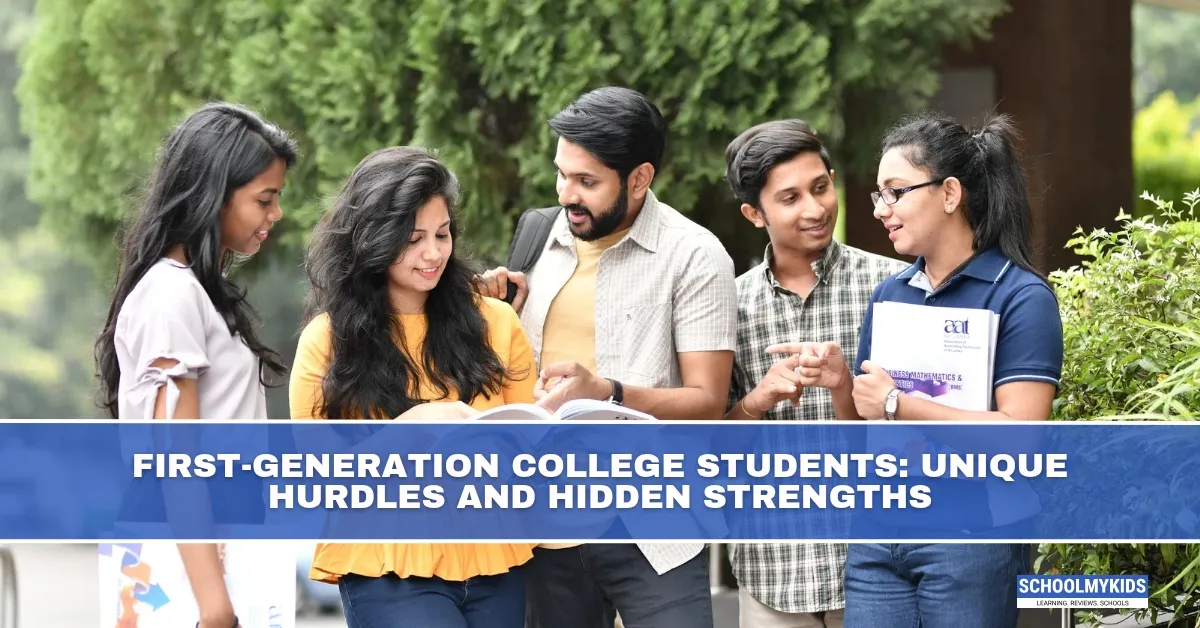Maria Gonzalez still remembers the moment she realized she was completely on her own. Sitting in her freshman dorm at State University, surrounded by roommates casually discussing their parents' college experiences and career advice, she felt the weight of being the first in her family to attempt higher education.
"Everyone else seemed to have this roadmap," Maria recalls five years later, now a successful marketing coordinator. "They knew about office hours, study groups, internship deadlines. I was figuring out college like I was solving a puzzle without the box cover."
Maria's experience reflects that of nearly 11 million first-generation college students in American higher education—students whose parents never completed four-year degrees. While their journey involves unique challenges, it also cultivates remarkable strengths that often go unrecognized.
The Financial Tightrope
Money worries dominate the first-generation college experience in ways that better-resourced students rarely understand. Research from the Pell Institute reveals that 91% of first-generation students carry student loans, with 78% expressing serious concerns about long-term financial impact.
"I worked three jobs during college," shares Marcus Williams, now a software engineer. "Campus coffee shop mornings, tutoring center afternoons, and restaurant weekends. My classmates complained about being tired from studying. I was tired from working 35 hours a week just to stay enrolled."
The financial pressure extends beyond tuition. First-generation students often lack family safety nets for unexpected expenses—from textbooks to interview clothes to emergency travel home. Many shoulder additional responsibility for supporting family members, sending money home while trying to fund their own education.
Navigating an Unfamiliar Culture
College culture presents invisible barriers that first-generation students must decode alone. Simple concepts like "office hours" or "prerequisites" aren't explained because institutions assume family knowledge transfer. Academic norms, networking expectations, and even social dynamics can feel like foreign territory.
"I didn't know you were supposed to talk to professors," admits Jennifer Chen, a first-generation graduate. "In my family, you showed respect to authority figures by not bothering them. I missed so many opportunities because I thought asking for help would seem disrespectful."
The cultural adjustment includes managing relationships with family and friends who may not understand the college experience. One McNair Scholar describes the challenge: "Friends from home thought I was acting superior when I talked about school. Family members felt like I was changing, moving away from my roots."
The Imposter Syndrome Amplifier
Self-doubt affects all college students, but first-generation students experience it with particular intensity. Without family members who can normalize the struggles of higher education, every challenge feels like personal failure rather than shared experience.
"When I got my first C+ on a paper, I thought about dropping out," shares David Rodriguez, now pursuing his master's degree. "My roommate called his mom, who reminded him about her difficult freshman literature class. I had no one to tell me that one bad grade wasn't the end of the world."
This self-doubt is compounded by financial anxiety and cultural displacement. Students question whether they belong in academic spaces while simultaneously worrying about the investment of time and money.
Hidden Strengths: The First-Generation Advantage
But focusing only on challenges misses the remarkable strengths that first-generation students bring to higher education. Their journeys cultivate capabilities that traditional students often lack.
Resilience and adaptability top the list. First-generation students master independent problem-solving because they must. They navigate complex bureaucracies, manage competing responsibilities, and persist through setbacks that might derail students with stronger support systems.
Work ethic and time management become refined skills through necessity. Students juggling jobs, family obligations, and coursework develop efficiency and prioritization abilities that serve them throughout their careers.
Cultural competence and communication skills emerge from bridging different worlds. First-generation students often serve as translators between their families and institutions, developing sophisticated abilities to communicate across cultural and socioeconomic differences.
The Innovation Mindset
First-generation students approach problems differently because they must. Without inherited strategies, they develop creative solutions and fresh perspectives. This innovation mindset proves valuable in academic research, workplace problem-solving, and entrepreneurial ventures.
"My background in my family's restaurant taught me customer service and crisis management better than any business class," notes Maria Gonzalez. "When my marketing team needed to understand diverse consumer segments, my lived experience was invaluable."
Building Success Networks
Successful first-generation students create the support systems they didn't inherit. They form study groups, seek out mentors, and build professional networks through intentional relationship-building rather than family connections.
These self-constructed networks often prove more diverse and robust than inherited ones. First-generation graduates frequently become powerful mentors themselves, creating pipelines of support for future students from similar backgrounds.
The Motivation Factor
The personal stakes of first-generation college attendance create powerful motivation. Students understand viscerally how education can transform not just their own lives, but their families' trajectories. This deeper sense of purpose sustains them through difficulties that might discourage other students.
"My degree wasn't just about me," explains Marcus Williams. "It was about showing my younger siblings what was possible, giving my parents pride in their sacrifice, and changing what college looked like in our family."
Institutional Recognition and Support
Forward-thinking colleges are recognizing first-generation students as assets rather than problems to be solved. Support programs now emphasize building on students' existing strengths while providing targeted assistance with unfamiliar systems.
Effective support includes:
- Financial literacy and resource navigation training
- Mentorship programs pairing first-generation students with successful alumni
- Family engagement initiatives that help parents understand college culture
- Career services that address networking gaps
- Academic support that builds on students' problem-solving skills
The Long-Term Impact
First-generation college graduates bring unique value to their careers and communities. Their diverse perspectives, developed resilience, and deep motivation make them effective leaders, innovative thinkers, and committed professionals.
They also transform higher education itself by challenging assumptions and expanding definitions of academic success. Their presence makes colleges more inclusive, responsive, and connected to broader communities.
Beyond Survival to Thriving
The first-generation college experience shouldn't be just about overcoming obstacles—it should be about recognizing and leveraging distinctive strengths. These students' journeys require different support, but they also offer different gifts.
As higher education evolves to serve increasingly diverse populations, first-generation students aren't just beneficiaries of opportunity—they're leaders in redefining what college success looks like. Their hidden strengths, forged through necessity and sustained by determination, represent some of higher education's greatest untapped potential.
Their stories remind us that the path to success isn't always linear, and the most valuable perspectives often come from those who had to fight the hardest to develop them.









Be the first one to comment on this story.